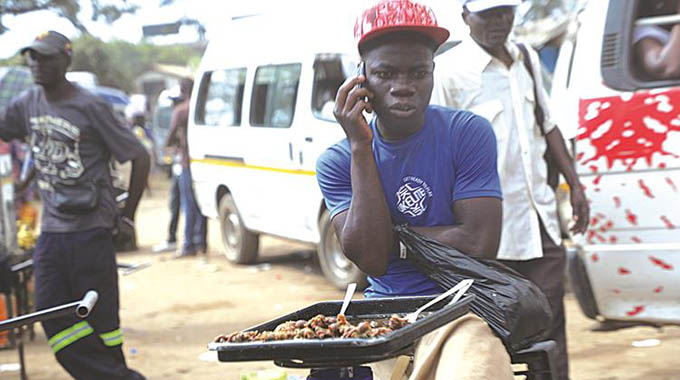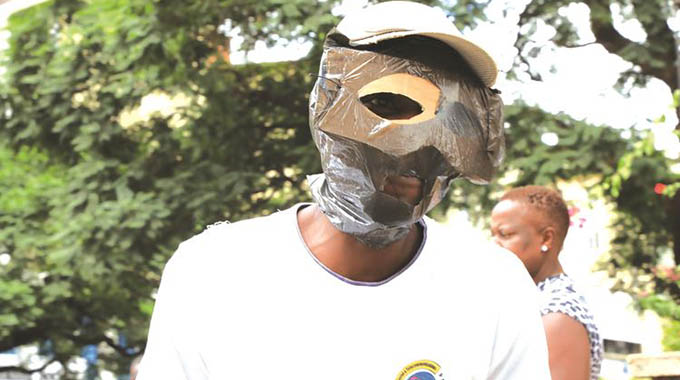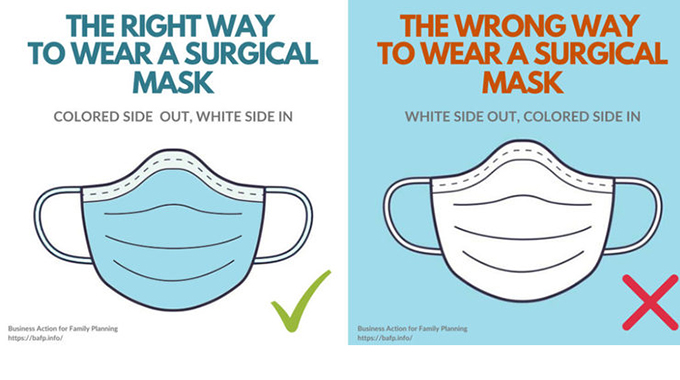Covid-19: Living normally endangering us all

Leeroy Dzenga Features Writer
Zimbabweans are creatures of habit. Once they latch onto a belief, convincing them otherwise is a mammoth task.
Even if the break in tradition means saving their lives.
A story has been written about villagers in Muzarabani, a low lying and flood prone rural settlement 250 kilometres north of Harare.
Numerous attempts to relocate them over the years have been met with spirited resistance, they were saying they do not want to be separated from their ancestors.
Some who took that stoic position found themselves in unfortunate positions when it finally flooded as predicted by experts.
Those who have soldiered on are living in a perennial state of risk.
Today Zimbabwe, with the rest of the world faces Covid-19 threat and the stoicism is rearing its head.
Despite calls by the President for people to practise social distancing, it appears like it is business as usual save for a few sprinkles of hand sanitiser here and there.

Taking no chances . . . A man in downtown Harare wears a homemade face mask — Picture: Tawanda Mudimu
A snap survey around Harare Central Business District showed that there is a degree of nonchalance with regards to Covid-19.
At ZB Bank, corner First Street and George Silundika, there were long queues with people squashed together worse than what usually happens in normal times.
Save for a few who were wearing masks and gloves, many appeared unconcerned about the virus.
Ximex Mall was the same.
Not the best place as far as hygiene is concerned, people were relaxed going about their business.
People there were even catcalling those, who chose to take precaution.
“You think you are safe but you are hungry, you will suffocate in that mask,” someone shouted as a lady in a mask passed by.
Downtown Harare could be worse and one wonders if the sustained campaign by health organisations and Government has been effective.
“I have been a vendor for 20 years, this is all I know. What will I be doing at home? I would rather the virus gets to me as I try to feed my family,” Shelly Saidi, a vegetable vendor in downtown Harare said.
Another youthful kombi driver is still adamant in belief that melanin is a special shield against contracting Covid-19.
“Ganda iri, ganda iri harina kuchipa, haipinde corona. (This skin is strong, corona does not stand a chance),” he said gloating.
Some of the people occupying space in downtown Harare are part of the black market traders. Instead of retreating to their homes they are looking to expand their ways.
Face masks and lemons are the hottest sells in that section of town, profiting from the paranoia, which is slowly creeping in on some who have access to information.
Two face masks are going for US$1.
Lemons have spiked in price; a single fruit is now selling for as much as $5.
The lemon price is product of the myth that lemon water can help people fight off Covid-19.
In many cases, Zimbabweans are famed for their resilience but this present stubbornness may prove fatal in the near future.
Many shops downtown are operating like it is normal, hardwares, electrical gadget stores and boutiques are still packing to the rafters in clear defiance of calls by the President.
Zimbabwe is not yet in crisis, it has five confirmed cases and as things stand this does not bring guarantees.
The United States is now the global epicentre of the disease with 85 435 confirmed cases and 1 295 deaths.
On March 5, 2020 the country had just 175 cases and its national leadership was adamant they would contain it with less effort. American President Donald Trump at some point referred to it as just a bad flu.
On January 31, Italy had two cases, but today they stand among the worst hit with 74 386 cases and 7 503 deaths as of yesterday.
Spain on March 2, had 121 cases and one death, they were considered to be among the least affected countries in Europe as well as the world.
They had a chance to contain the diseases by taking precautionary measures but people continued living normally, only effecting a partial lockdown on March 16 when the cases had shot to 9 942 cases and 342 deaths. As of yesterday, Spain had 57 786 infections an 4 365 deaths.
The lockdown could have come a little too late, ten days since it was effected there are 56 188 cases and 4,089 overtaking China as the second most hit country after Italy.
Our neighbour South Africa, with whom we share a lot of human traffic suffered the same fate.
On March 5, they confirmed their first case, as of March 27 they had 1 000 cases, and have recorded two deaths.
All these figures put into perspective how things can turn in a short space of time, a month could be longer than a year in such times.
Yesterday, I ran a poll on my Twitter page asking if people are still going to work physically or working from home.
Of the 185 people who responded, 61 percent said they are working from home, while the remaining 39 are still reporting for work. This is a fair response from the private sector where most of the respondents are drawn from but 39 percent is still a figure of concern.
While this points to companies heeding the call, there are those who may be unable to make this decision voluntarily and may need inspiration to prioritise their own safety.
The partial lockdown needs to be adhered to and law enforcement needs to come to the fray.
People cannot continue to drink at bottle stores, cramped as if these are normal times.
What is lost on many is, the quicker the curve of infection is flattened, the earlier they can drink, trade or socialise in peace.
Although some have been stubborn, there have been positive sights in downtown Harare.
In some hair salons, hairdressers, barbers are coming only on appointment, while others who work in crowded spaces have adopted a rotational shift system.
With enough creativity, even the informal sector can play its part in reducing numbers and crowds. One hopes people find it earlier.
If one is living their life normally, then they are putting us all at risk.







Comments